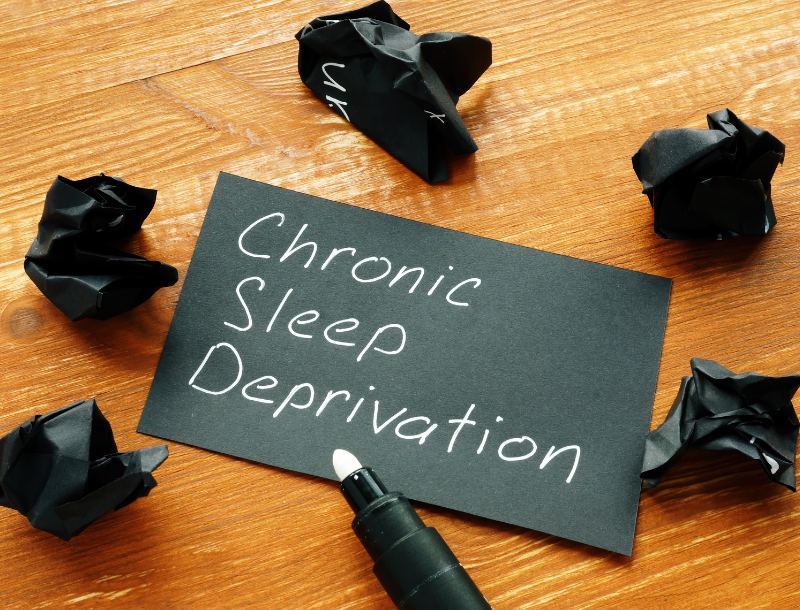Lack of sleep impacts teens’ mental health significantly. Here are some helpful tips to tackle to address this common challenge in teens.
Sleep is essential for everyone; from infants to teenagers, all need it. But in this fast-paced world where everybody seems to be on the go, our children, especially teenagers, find it difficult to catch up! As a result, they often sacrifice their sleep for some extra time at night. Many factors impact your teen’s mental health. One of them is, undoubtedly, sleep. As a single parent, do you see your teen sacrificing their sleep over late-night schoolwork?
Research suggests that teens need at least 8–10 hours of sleep every night. It is necessary for their mental, emotional, and physical development. But data shows that many teenagers get far less sleep than that. Lack of sleep directly impacts teen’s mental health and their brain functioning. A tired brain finds it difficult to focus, remember, or make decisions. However, a good night’s sleep is the best medicine for all these issues. It helps them to feel fresh, energetic, and productive throughout the day.
Keep Reading To Know More About Impact of Sleep on Teens

Why is sleep important for Teens?
Academics
Teens often turn into night owls and sit through the nights to finish their assignments, projects, or homework. And what if there is a test the next day? They would spend the entire night feeding their brain with information with almost little to no sleep in hand. Yet, this sacrificed sleep is essential to give their brain enough time to process and recall the information during the test.
Sleep is a vital tool for learning. Well-rested teenagers are seen to be more attentive during long lectures without getting sleepy or zoned out. They can grasp challenging concepts better and even offer creative solutions to complex problems.
Emotional Health
Sleep highly influences how we “feel”. Lack of sleep impacts teens’ mood, making them feel stressed, irritable and grumpy. It is also one of the primary reasons why today’s teens experience mental health issues like depression and anxiety.
If they are feeling down, a good night’s sleep is enough to help them feel refreshed and uplift their mood. They will have much better emotional bandwidth and be far less likely to snap at small things. When challenging situations arise, it will give them the mental space to pause, think and react rather than jumping into sudden responses.
The human body develops a lot during adolescence, and sleep plays a big part in this process. During sleep, the body produces growth hormones vital for a teenager’s physical development. It is also necessary for the immune system to function correctly.
Sleep is like the restoration time for the body when the cells multiply, repair and fuel themselves back with all the energy required to work for the next day. For instance, imagine a teenager having a dance competition in her school; a good night’s sleep would not only give her more energy to perform better. But it will also help her heal the muscle tear caused during her practice.
Why are Teens Sleep-deprived?
Sleep deprivation among teenagers has become a common phenomenon across the globe. Following are a few different reasons why this happens:
Hormonal Changes
Teenagers experience many hormonal changes during their adolescence. And one of the prime changes seen in them is the shift in their circadian rhythms, i.e., their body clock. This shift makes them naturally feel more awake at night and sleepy in the mornings. It could be why you would see your teen fully energised and focused around 10 pm while super groggy or exhausted for the 7 am morning school. Research shows that teens don’t feel sleepy until 11 pm or aren’t fully awake until 9 am. All this is because, during these times, their bodies are constantly telling them, “It’s not yet time!”
Screens and Technology
Teens usually spend a lot of their time on devices. They use their laptops, cell phones, or tablets to study, watch movies, chat with friends, or scroll through social media. However, the use of screens before/during sleep hours hinders their sleep cycle. The blue light emitted from these screens decreases melatonin production, a sleep hormone essential for the body to drift into a sleep state. For instance, if your teenage son keeps playing video games past 11:30 pm, his natural sleep time will get pushed back. The continuous action would keep his brain active and alert, making it harder for him to fall asleep.
Uncomfortable Sleep Setting
A person’s sleeping environment plays a massive role in how well that person gets sleep. Getting a good night’s sleep would be challenging if a teen’s bedroom environment is uncomfortable. Many children find it difficult to sleep if there’s noise around them. Their room might be near a noisy street, or their siblings might be too loud. They might also need more space. An uncomfortable mattress or pillow could be another reason a teen can toss and turn through the night. In such situations, you, as a parent, can talk to your teen and present them with more comfortable solutions.
Stress and Anxiety
Stress is a part of teenhood. Academics, peer pressure, relationship issues, and future worries,– all seem to take a toll on teens’ mental health and sleep. A fight with a friend or concerns about fitting in with the peer group would keep them awake at night. Many teenagers are also anxious about their relationship with their parents. Moreover, the stress of performing well in their studies and the fear of competition are the biggest concerns among teenagers. Regular comparisons with others and the constant feeling of not doing enough urge them to overwork themselves without rest. All this stress and anxiety keeps their minds racing, making it hard for them to sleep.
Over-Involvement in Activities
Many teens have packed schedules with school, extracurricular activities, and social events on their schedules. Besides, many teens have tuition or other classes like music or dance. Some teens also work at part-time jobs for some extra money. Meanwhile, some contribute to their household chores. Moreover, teens also love to hang out with friends and attend late-night events. These activities leave little time in their hands for homework and studies, which eventually gets compensated for by cutting down their sleep.

How Can Teens Get Better Sleep?
Lack of sleep impacts a teen’s overall well-being. But by maintaining sleep hygiene, your teenager can get into “the sleep mode” much faster. Here are some tips you can suggest to your teens for better results.
Exercise
Research suggests that exercising can be a great way to sleep better. Ideally, moving your body 2-3 hours before bedtime gives the body enough time to cool down for sleep. 10-minute short jogs or dancing to their favourite songs are other fun ways to suggest to your teenager. They can also practise deep breathing exercises or yoga. It’s relaxing and helps prepare their body for a soothing sleep.
Sleep Schedule
A proper sleep schedule can sort your teenager’s sleep problem by up to 50%. Ask them to go to bed and wake up at particular “set times” every day. It helps to train their biological clock and makes it easy to fall asleep. Moreover, setting up the space before going to sleep, like making the bed, clearing out the mess, or lighting up scented candles with a calm aroma, sets the tone for bedtime.
No Late-Night Screens
Create a “screen-free” time rule in the house during which no devices can be used one hour before bedtime. Your teenager can use the time to read a book, listen to soothing music, or do journaling. They can even try having a “Me Time”, where they can pamper themselves by giving themselves a good massage, a relaxing bath and getting into comfy clothes.
Avoid Caffeine At Night Times
Caffeine is known to affect the levels of melatonin production directly. Because of this, using caffeinated beverages after afternoons is not advised. Instead, suggest your teenagers try herbal teas(if necessary), which are known for their soothing properties. Moreover, drinking warm water or milk before bed would keep them hydrated and calm.
As a single parent, having concerns about your teen’s mental health is natural. We understand that you come from a loving space. However, understanding what your teenager needs is also very important. Before giving them advice, try communicating with them and asking them about their sleep. Try understanding their natural sleep pattern instead of forcing your teenager to sleep early. Sit together and help them offer a healthy routine that would not compromise their 8-9 hours of sleep. With the right tools and guidance, we know you and your child can overcome this stage. Trust the process and keep moving!


